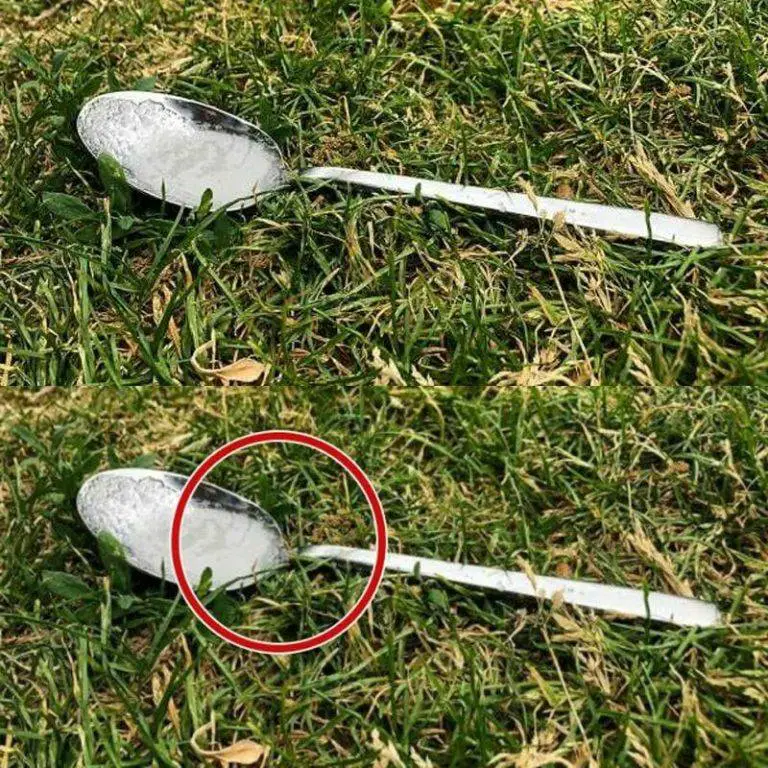You’ve probably heard a lot of strange advice on the internet lately, but here’s one that might actually make you stop and think: put a spoonful of sugar in your backyard before leaving the house.
At first glance, it sounds like another quirky “life hack,” but this simple act actually connects to something much deeper—and more important—than most people realize. It’s not about warding off pests or feeding squirrels. It’s about helping to save one of the most vital parts of our ecosystem: bees.
Let’s dive into the real reason behind this viral suggestion, explore its roots, and—more importantly—clarify what you should and shouldn’t do if you genuinely want to help the bees.
Why Should You Care About Bees?
Some people are indifferent, or even annoyed by bees. They sting. They buzz. They make us jump at picnics. But here’s the thing: bees are essential to human life on this planet. They are responsible for pollinating a vast majority of the food we consume—fruits, vegetables, nuts, and more. Without them, global agriculture would face a massive crisis.
In fact, it’s estimated that around 90% of the world’s food supply is pollinated by bees and other insects. Without these tireless workers, grocery store shelves would look shockingly empty, and food prices would skyrocket due to shortages.
Yet despite their importance, bee populations have been declining at alarming rates due to pesticide use, habitat loss, diseases, and climate change.
“Put a Spoon of Sugar Outside”: What Does It Really Mean?
The internet ran wild with the idea that a spoonful of sugar in your backyard could save bees. The quote often associated with this trend was falsely attributed to naturalist Sir David Attenborough, and while the sentiment is well-meaning, the facts have been twisted along the way.
The original message that inspired this trend was more nuanced: a sugar-water mix might revive an exhausted bee.
Bees, especially during the warmer months, can become dehydrated or overworked. You might occasionally see one lying still on a pavement or garden table, seemingly lifeless. Sometimes, these bees are just tired—not dead. A mix of two teaspoons of white sugar and one teaspoon of water offered on a spoon or shallow dish can give them just enough energy to recover and fly away.
However, this isn’t meant to be a daily habit. Bees should not be encouraged to rely on sugar water as a regular food source, as it lacks the nutritional complexity of natural nectar.
Don’t Just Dump Sugar in the Garden
Some misunderstood the advice and began sprinkling dry sugar or sugar water throughout their gardens, thinking they were creating a bee buffet. But this can actually harm bees in the long term.
Here’s why:
- Sugar water doesn’t have the nutrients bees need.
- Over-relying on sugar water can confuse bees, leading them away from real flowers.
- Fermented or spoiled sugar water can be dangerous to insects and other animals.
The best way to help bees is by supporting their natural food sources, not replacing them with processed sugar.
Real Ways to Support and Protect Bees
If you truly want to be a part of the solution, here are sustainable and effective ways to help the bee population thrive:
1. Plant Bee-Friendly Flowers
Fill your garden, balcony, or windowsill with pollinator-friendly plants. Choose native flowers that bloom at different times of the year to give bees a consistent source of nectar and pollen.
2. Avoid Harmful Pesticides
One of the biggest threats to bees is pesticide use. Choose organic gardening methods and look for alternatives to chemical sprays. Even natural repellents should be used with caution.
3. Provide Water
A shallow dish with clean water and a few stones (for landing) is a safe and easy way to keep bees hydrated without sugar.
4. Leave Wild Areas
Bees love messy gardens! Allow some weeds like clover and dandelions to grow. These plants are rich in nectar and beloved by pollinators.
5. Create Safe Spaces
Install bee hotels or leave sections of your garden undisturbed for wild bees to nest. Not all bees live in hives—many are solitary and need bare soil or wood to burrow.
6. Support Local Beekeepers
Buy raw, local honey. This helps small-scale, responsible beekeepers keep doing their work, and it supports ethical bee farming practices.
What to Do If You Find a Tired Bee
If you see a bee that looks motionless but intact, you can offer it a quick boost:
- Mix 2 teaspoons of white sugar with 1 teaspoon of water.
- Place it in a shallow container or spoon.
- Gently move the bee close to the mixture (do not pour it on the bee).
- Allow the bee to drink and recover. Often, within a few minutes, it will fly away.
Avoid giving honey or brown sugar, which can be harmful due to contaminants or improper sugar content.
Final Thoughts: Small Actions, Big Impact
Saving bees doesn’t require becoming a beekeeper or changing your entire lifestyle. Sometimes, it’s the small actions that collectively make the biggest difference. Whether it’s planting a flower, refusing to spray your garden with chemicals, or even offering sugar water to a bee in distress, your choices matter.
Remember, it’s not about leaving sugar in your backyard every day—it’s about understanding why bees matter and adjusting your habits to support them naturally. Let’s keep the buzz alive—literally.

